How do you use Wikipedia?

Mind your language ... English dominates the Wiki landscape, with Japanese in second place
Image: REUTERS/Gary Cameron
Stay up to date:
The Digital Economy
Wikipedia was officially launched on 15 January 2001. By May of that year, articles were being published in English, French, German, Catalan, Swedish and Italian. Today, 15 years later, you can read articles in 291 languages. The website, dedicated to a collaborative community approach to knowledge, is one of the most visited websites in the world, currently ranking seventh overall, averaging 18 billion pageviews per month.
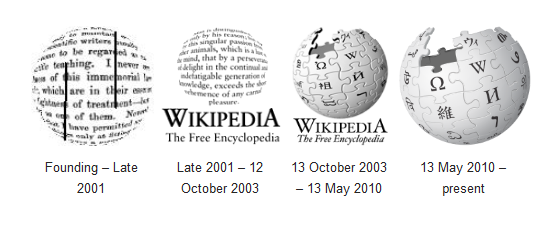
In 2015, English-language articles were by far the most popular, with 97.2 billion page views. Japanese, the second most visited language edition, had 15 billion; while Spanish, in third place, had 14.3 billion.
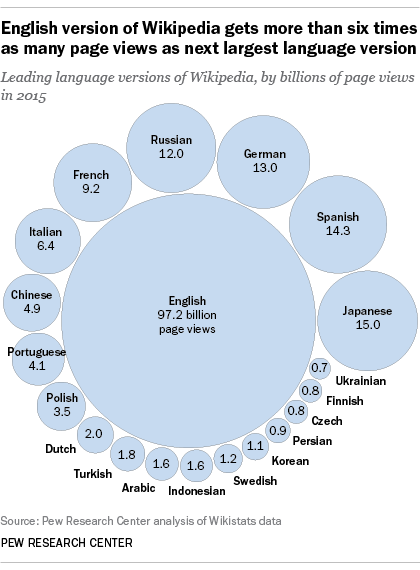
Pew Research explored the numbers and found that those searching in English used the website to find out about everything from current events to pop culture, from ISIS to Game of Thrones. Searching for information about other websites, such as Facebook and Google, was also popular. The English language so dominates the Wiki landscape that the number one search term in English had more pageviews than all of the Japanese searches combined.

Those trends are similar throughout the world, but which specific pop culture or news events are of interest to you seems to be largely based on your language and that of your neighbours. All language editions show a heightened interest in regional stars and news events, but there is no worldwide single point of interest.
Speakers of European languages (except Spanish and Portuguese) all show an interest in ISIS, but the terrorist group disappears from the top 10 topics in Russia and Japan. Both of those countries show the most interest in their own region, with Japan focusing almost entirely on local pop culture, while Russia focuses mostly on its regional politics and social media networks.
This trend seems to confirm a recent study, which suggested that languages with their own online social networks tend to be more isolated than others on the internet.
The only common thread worldwide, which is found in almost all of the major search languages, is an interest in the country of that language. Japan in Japanese (10th most searched), Germany in German (second), Russia (first), France (third), Italy (first), Brazil (second) and Poland (first) all scored well over a million page views each last year.
Japanese
To revisit the data on Japanese readers being interested in pop culture: seven out of 10 of the most searched articles in 2015 were about comics, movies and music.

Spanish
Readers of the Spanish-language edition are interested in sport and world history. Volleyball and basketball are particularly popular. As a language spoken in so many countries, the results are mixed from a variety of cultures.
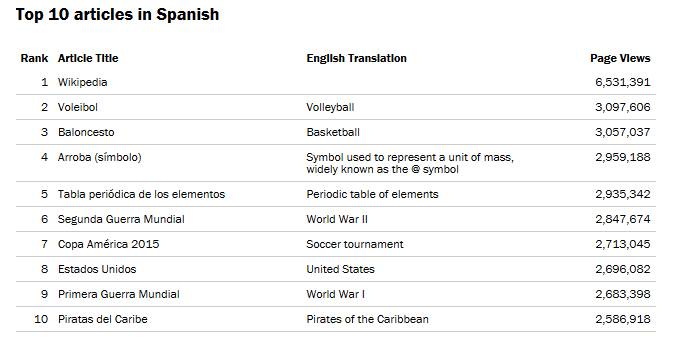
German
German speakers had a variety of interests, spanning everything from world events to TV shows, as well as searches for German-speaking locations including Germany, Switzerland and Berlin.

Russian
Searches by Russian speakers show just how much the region is linguistically distinct from others. Searches included Russia and neighbouring nations, President Vladamir Putin and popular Russian social networks such as VK and Classmates.
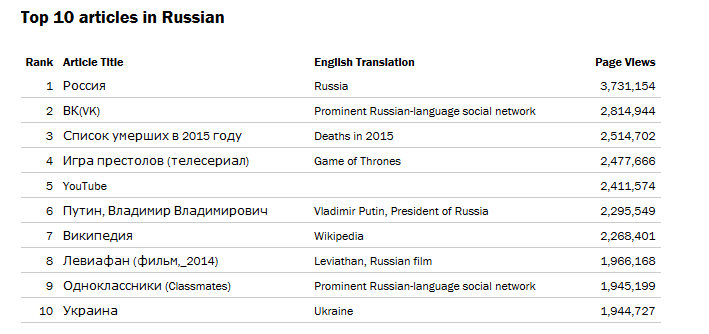
French
The tragedy of the terror attacks in France in 2015 are reflected in the number of searches for ISIS and Charlie Hebdo, but there is also a heavy emphasis on French culture.

Italian
Italians showed an interest in their country and its politics, but also held a fascination for American TV and movies in 2015.

Portugese
As Portuguese is spoken in both South America and Europe, results have been more sporadic. Portuguese speakers, it appears, really like Coca-Cola.
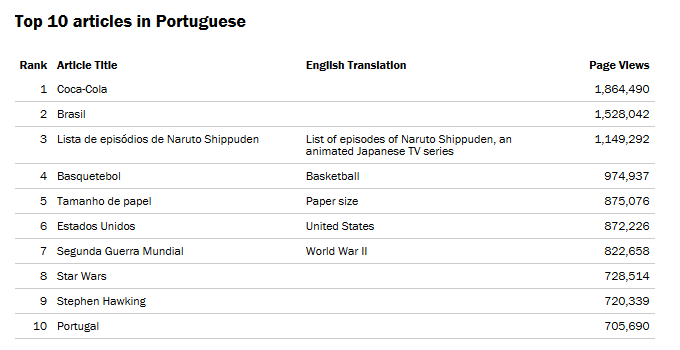
Polish
The Polish have a strong mix of regional interest and global pop culture.
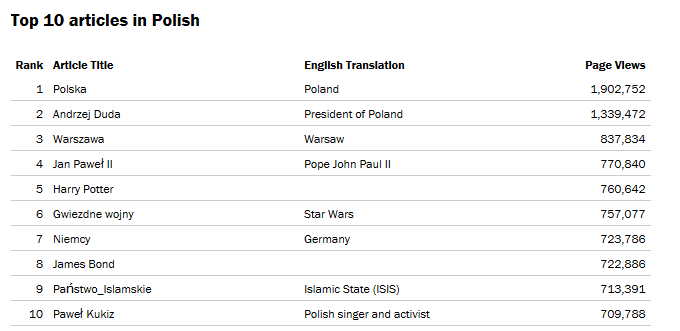
Have you read?
Which languages rule the internet?
The countries with the most online freedom
What if the internet went down for a day?
Author: Donald Armbrecht is a freelance writer and social media producer.
Don't miss any update on this topic
Create a free account and access your personalized content collection with our latest publications and analyses.
License and Republishing
World Economic Forum articles may be republished in accordance with the Creative Commons Attribution-NonCommercial-NoDerivatives 4.0 International Public License, and in accordance with our Terms of Use.
The views expressed in this article are those of the author alone and not the World Economic Forum.
Forum Stories newsletter
Bringing you weekly curated insights and analysis on the global issues that matter.